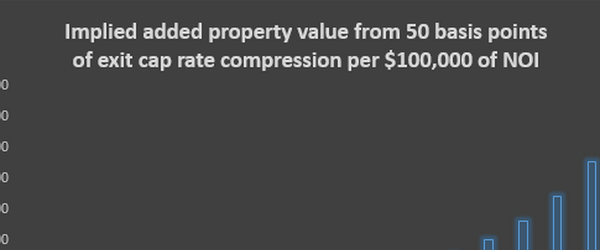Investment value of property is the value to an investor with particular return and risk objectives for the property under consideration. This value is typically calculated using the discounted cash flow (DCF) model.
Since return and risk objectives vary from investor to investor the same property may have different investment value for one investor and different for another. Obviously, the investor that will assign the higher investment value to a property that is for sale, will be the one that will acquire it, if such investment value of course is higher than the seller’s minimum price at which he is willing to sell the property.
The key variables that determine the investment value of property are the expected yearly net cash flows (revenues minus expenses) over the investor’s planned holding period, and the investor’s required rate of return, which is used as the discount rate for calculating the present value of expected yearly net cash flows. The so estimated present value of net cash flows is the investment value of property for the particular investor.
Note that each investor determines the return that he/she requires for purchasing a particular property depending on how risky he/she considers the ownership of the particular property over the investment horizon. If the investor considers the particular property very risky, he/she will require a quite high rate of return for committing investment funds on such property. This means that the expected net cash flows from the property will be discounted using a quite high discount rate, which in turn will result in a quite low investment value. On the contrary, if the property is considered to have very low risk, a considerably lower discount rate will be used for discounting the future cash flows, thus resulting in a considerably higher investment value of property.
Property investors aiming at high returns should be using a higher discount rate for estimating the investment value of a property. However, if this discount rate is considerably higher than the annual return required by the average property investor in the local marketplace, then the estimated investment value will be considerably lower than the market value of the property, which means that it will be difficult to acquire the property at a price reflecting the estimated investment value




































Comments